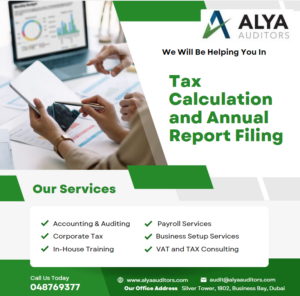
What Makes Alya Auditors One of the Top Auditing Firm in Dubai?
What Makes Alya Auditors One of the Top Auditing Firm in Dubai? In Dubai’s highly competitive business environment, companies must align with stringent financial regulations
Home » UAE’s ‘economic substance law’ and the changes made in ESR Law
The UAE’s ‘Economic Substance Regulations’ have gained momentum again. While not a tax, it aims to determine that UAE entities undertaking ‘relevant activities’ have adequate ‘economic substance’ in the UAE, are directed and supervised, and have adequate assets, resources and qualified people in UAE.
Recently, significant changes were made to the ESR through cabinet resolution No. 57 of 2020 and ministerial decision 100 of 2020. The amended ESR is a positive. and UAE businesses should take a note of the amendments to reassess the implications and where they stand on compliance.
The amended ESR covers juridical persons or unincorporated partnerships, while ‘natural persons’ – possibly including sole proprietors, trusts and foundations – are now excluded. Four categories of licensees have been specifically exempted from the ESR covering (a) investment funds, (b) a licensee that is tax resident in a foreign jurisdiction, and (c) a UAE branch of a foreign entity if the branch’s income is taxed in a foreign jurisdiction.
The exempt category also includes entities wholly-owned by UAE residents/nationals and are not part of a multinational group… provided it carries out business in UAE. This is a big relief for local businesses in UAE. All exempted licensees are required to submit only the ESR notification along with prescribed documents on an annual basis.
Clarity has also been provided on businesses with multiple branches within UAE, for foreign branches of a UAE entity, and for entities that undertook the ‘relevant activities’ but did not earn any income.
Amongst other changes, it now covers purchasing of goods from a foreign-connected person as well as the reselling of such goods. Under the original ESR, coverage under the D&SC business required (a) purchasing of goods from a foreign-connected person; (b) importing and storing those goods in the UAE; and (c) reselling the goods outside the country.
With the removal of conditions (b) and (c), purchasing of goods from foreign group companies for international distribution typically referred to as “bill to-ship to” transactions, or for local distribution within UAE, would trigger ESR compliance. Another welcome change is the introduction of a concept of ‘group’ to identify foreign-connected person and link it with the requirements to prepare consolidated financial statements.
A landmark change is the appointment of Federal Tax Authority (FTA) as the ‘National Assessing Authority’. In addition to VAT and excise tax, the FTA will undertake assessments to determine compliance with economic substance tests by the entities. The FTA will also be responsible for administrative penalties, appeal process and other prescribed functions.
The authorities will be responsible for collecting and review of information, assessment of exempt licensees and other prescribed functions. An online portal will be launched by the Ministry of Finance for submission of ESR notification/reports and other documents. Businesses will have to re-submit the ESR notification submitted earlier.
ESR notification and report should be submitted within six- and 12-months respectively, calculated from the end of financial year of the company that are typically December, March or June. It has been clarified that the board members (or equivalent) of the business need not be UAE resident, but must be physically present in UAE when taking strategic decisions.
Increased and stringent penalties for non-compliance could range from Dh20,000 to Dh50,000, further increasing to Dh400,000 and possible cancellation/suspension of trade license.
Considering that limited time is available to prepare a detailed ESR report and submit/resubmit ESR notification, it is strongly recommended that businesses reassess the implications under the amended ESR.

What Makes Alya Auditors One of the Top Auditing Firm in Dubai? In Dubai’s highly competitive business environment, companies must align with stringent financial regulations

Why Dubai Businesses Need Expert Accounting Services in 2024 In today’s dynamic business landscape, Dubai continues to be a global hub for entrepreneurs and enterprises.

Corporate Tax Registration Deadline Alert If your business license was issued in August or September (any year), make sure to register for Corporate Tax by
Source : Gulf News
Truly, let us know what service you are looking for and hence we can get back to you with more details.
Silver Tower, Business Bay. PO Box: 41102, Dubai, UAE.
Sharjah Airport Free Zone PO Box: 120403 Sharjah, UAE.
+971 48769377
+971 52 9750690 , +971 50 522 1035
Mon – Fri : 8:30 AM – 6 PM
Saturday – 9 AM – 5 PM
Sunday – Closed
© Alya Auditors 2022 All Rights Reserved